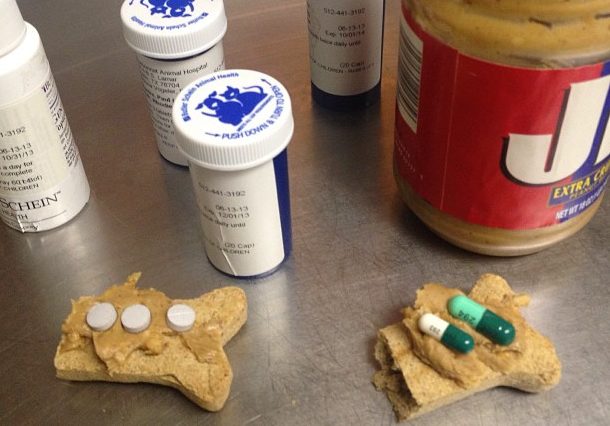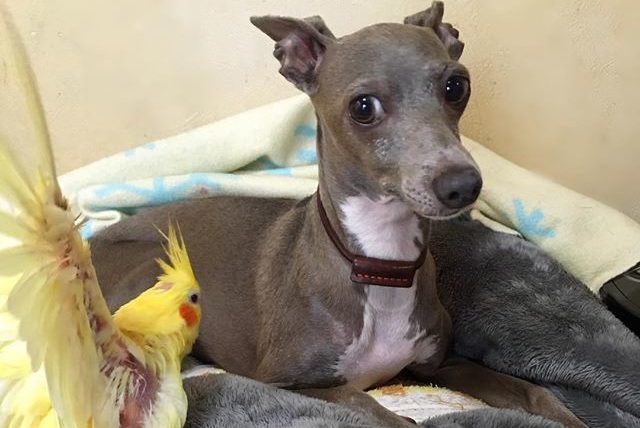Just like humans, dogs can be allergic to a wide array of things. You have likely heard about food sensitivities and seasonal allergies, but there’s so much more your dog can be reactive to. From the beds they sleep on to the other pets in your home, these allergens could potentially cause problems for your sensitive pup.

Cleaners and Detergents
A dog’s skin is naturally more delicate than that of a human. Harsh chemicals present in common household cleaning solutions and laundry detergents may be to blame for your dog’s chronic itching.
Medications
Believe it or not, dogs can be allergic to any medication – even the very meds that are used to treat allergies! If your pup begins vomiting, having loose stools, or breaking out in hives while taking a new medication, discontinue the drug and contact your vet right away. If seizures, facial swelling or difficulty breathing occur – seek emergency care immediately.

Flea, Tick and Heartworm Preventatives
Although most adverse reactions to these products are mild – mostly vomiting or irritation at the application site – in rare cases severe reactions can occur. Always ask your vet before beginning a new product, read the label for warnings, and monitor your pet for an hour or so after a dose. Oral preventatives are best given on a full stomach unless otherwise directed.
Shampoos
Human hair products are very harsh and strip away the natural moisture your dog needs for healthy skin and coat. Always use a shampoo designed for pets and well suited to your dog’s particular grooming needs. Soap-free, fragrance-free and medicated shampoos are available for dogs with specific allergies and skin conditions.

Perfumes
Having trouble getting to the bottom of your dog’s allergies? It could be your perfume, cologne or air freshener. Even the finishing sprays used by some groomers can lead to itchy, rashy skin. Try eliminating scented sprays and diffusers for a month and see if your pup improves.
Cigarette Smoke
It can be a complicated situation if an allergic pet lives with a smoker. Even if they go outside to smoke, the residue on their skin, hair and clothing can be enough to spark a reaction in their sensitive dog.

Mold Spores
One of the most common allergens in humans, mold is also a problem for many pets. Because dogs use their noses to explore everything, it is difficult for allergy sufferers to avoid inhaling a few spores here and there. For allergens that cannot be avoided, your vet may recommend a series of injections. They can help control the symptoms and/or lessen your dog’s sensitivity.
Feathers
Your pup’s red, watery eyes and sniffles could be a reaction to that expensive down bed you bought him. The dander that results when feathers begin to break down creates an airborne dust that your dog can inhale. If you have a pet bird, keep its cage in a separate room and clean the cage frequently.

Dander from Animals or Humans
Furry pets could also be making your dog allergic. Cats, gerbils, and ferrets all shed dander that can act as an allergen to your pup. Some dogs have even been found to react to the skin cells shed by humans – although it’s very rare!
Bug Bites or Stings
Many of the pests that plague our dogs outdoors can also follow them inside, especially when the weather turns colder. In fact, dogs are more likely to be bitten by a spider inside your home than outside.
For dogs with this allergy symptoms can range from mild itching all the way to a life threatening emergency. Much like humans, dogs who are allergic to bee stings, spider bites or even flea bites should be monitored very closely. If your pet develops facial swelling, difficulty breathing, severe pain or seizures after a bite or sting seek veterinary care immediately.

Featured Image via Instagram/EastCoastShihTzu
 Toledo, United States.
Toledo, United States.